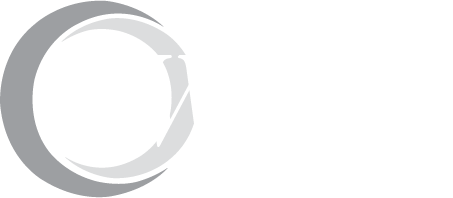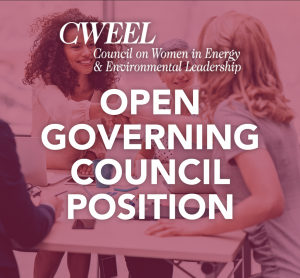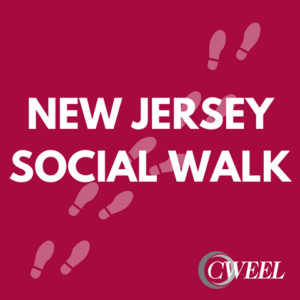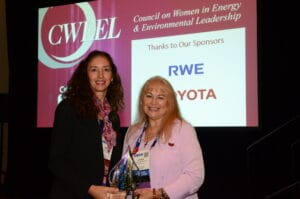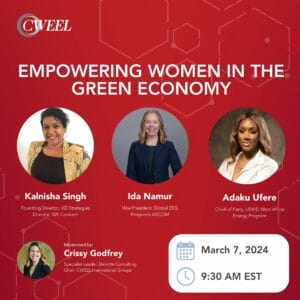
Empowering Women in the Green Economy: Insights from CWEEL’s International Women’s Day Panel
On March 7, 2024, the Council on Women in Energy & Environmental Leadership (CWEEL) hosted a thought-provoking panel discussion in honor of International Women’s Day. The event brought together industry leaders, experts, and advocates to explore the challenges and opportunities faced by women in the green economy. With a global audience of 190 live attendees representing 33 countries, the conversation was both enlightening and impactful.
Panelists and Moderator
The panel featured three remarkable women who have made significant contributions to the energy and environmental sectors:
- Ida Namur: Vice President, Global ESG Programs at AECOM
- Kalnisha Singh: Founding Director of KD Strategies and Director at WE Connect
- Adaku Ufere: Chief of Party, USAID West Africa Energy Program
The discussion was skillfully moderated by Crissy Godfrey, a Specialist Leader at Deloitte Consulting.
Key Discussion Points
1. Barriers Faced by Women in the Industry
The panelists delved into the persistent barriers that hinder women’s progress in the green economy:
- Cultural and Gender Norms: These norms continue to limit women’s access to education, training, and job opportunities. The energy and green economy sectors are no exception.
- STEM Enrollment Gap: Female enrollment in STEM fields, especially engineering, remains alarmingly low (as low as 8 percent in some countries). Encouraging more women to pursue STEM education is crucial.
- Retention Challenges: Women are less likely than men to enter and remain in STEM occupations, which form a significant part of green jobs.
- Gender-Specific Finance Gap: Despite women owning 22 percent of micro-enterprises and 32 percent of small and medium enterprises globally, the MSME finance gap for women stands at an estimated $1.7 trillion. Access to green finance mechanisms remains challenging.
2. Opportunities in the Green Economy
The shift toward a green economy presents immense opportunities for women. As the world transitions, an estimated 24 million new green jobs will emerge globally. Women can play a pivotal role in both emerging and mainstream green jobs.
3. The Gender Lens
To ensure an inclusive green economy, the panel emphasized the need for a gender lens in policy-making, decision-making, and resource allocation. Key actions include:
- Equitable Access: Ensuring that women have equal access to green jobs, education, and financing.
- Representation: Increasing the representation of women in leadership roles, including board positions and CEO positions.
- Crafting Policies with Gender Sensitivity: Policies must be designed with a clear understanding of gender-specific challenges.
Conclusion
The CWEEL panel discussion underscored the urgency of empowering women in the green economy. By addressing barriers, leveraging opportunities, and adopting a gender-inclusive approach, we can create a sustainable and equitable future for all.
About CWEEL:
The Council on Women in Energy & Environmental Leadership (CWEEL) is an AEE membership division that supports career development for women across the energy industry. This includes mentoring, networking, and scholarships for aspiring women to pursue technical education and careers in the energy and environmental fields. CWEEL is just one-way AEE supports a greater diversity of experience, talent, and ideas across our industry.
